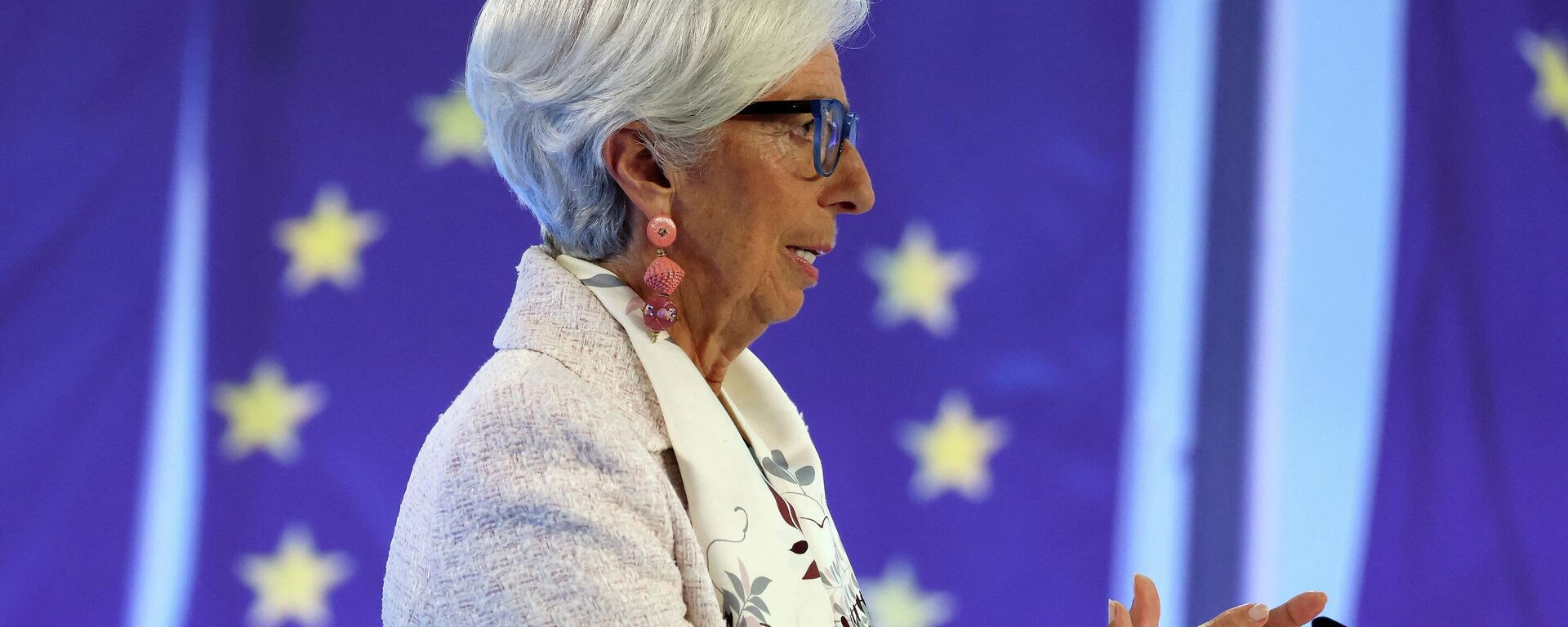https://sputnikglobe.com/20230827/unsatisfactory-german-economy-remains-dire-as-scholz-shuns-calls-for-more-borrowing-1112925527.html
'Unsatisfactory': German Economy Remains Dire as Scholz Shuns Calls for More Borrowing
'Unsatisfactory': German Economy Remains Dire as Scholz Shuns Calls for More Borrowing
Sputnik International
Germany's business confidence declines for the fourth straight month, raising concerns about its deepening economic challenges, while Scholz defends his government's stance against taking on more debt.
2023-08-27T17:46+0000
2023-08-27T17:46+0000
2023-08-27T17:46+0000
economy
europe
olaf scholz
germany
china
russia
democrats
bundesbank
european union (eu)
newsfeed
https://cdn1.img.sputnikglobe.com/img/07e7/01/19/1106691452_0:0:3180:1790_1920x0_80_0_0_f29b40853e0585b69c65e7adce8e627f.jpg
German Chancellor Olaf Scholz has rebuffed appeals for increased government spending supported by borrowing to stimulate an economic upturn and asserted that Germany is in a favorable position despite its current underperformance.The Social Democrats chief emphasized that Germany shouldn't be portrayed negatively as a business hub; instead, it holds promising economic prospects.Scholz told a German media outlet that his country’s economic clout in the European Union possesses "the best pre-requisites to ensure we'll still be playing in the top league technologically in 10, 20 and in 30 years’ time."The chancellor made these remarks the day after business confidence data revealed that Germany faces another setback in August, even though the economy successfully emerged from a recession in the middle of the year.Germany's Business Confidence Outlook Continues to PlummetAccording to the Germany-based ifo Institute's Business Climate Index, there continues to be a consistent declining trend since May 2023. It began with a sharp decline from 91.7 to 88.5 points in June and continued to plummet to 87.3 points in July, before reaching 85.7 points in August. The manufacturing, trade, and construction sectors experienced significant drops, leaving the service sector to cool in August 2023.Germany, Europe's largest economy and once the driving force behind Europe's economic growth, is facing concerns of prolonged economic weakness. It is the only major country in the region expected to experience a contraction in its economic output this year.However, the minister stated that the nation's mid- and long-term growth ordeals are "more serious," proposing actions to amplify investments and help energy-dependent industries.Germany's Economic WoesEarlier in the week, the Bundesbank stated that the economy is projected to remain dormant this quarter, influenced by soaring interest rates and modest global demand impacting manufacturing. Private consumption remained stable between April and June, following declines in the two previous quarters in 2023.Germany’s chancellor characterized the current growth as "unsatisfactory" during a chat with a media source. He also pointed out that Germany faces the consequences of a declining global economy due to its export-oriented economy. He dismissed the claim that his government's unwillingness to ramp up deficit spending has aggravated Germany's problems.“I’m not sure that the Union actually thinks we should take on more debt,” he expressed.Scholz submitted that Germany incurred significant loans worth hundreds of billions of euros in recent years to address the COVID-19 pandemic and alleviate the impacts of NATO’s proxy war against Russia, including the subsequent rise in energy costs.
https://sputnikglobe.com/20230826/eus-top-banker-lagarde-predicts-long-term-downturn-insists-german-economy-not-broken-1112912201.html
https://sputnikglobe.com/20230314/afd-politician-strikes-gain-steam-in-germany-as-economy-spirals-into-crisis-1108387711.html
germany
china
russia
Sputnik International
feedback@sputniknews.com
+74956456601
MIA „Rossiya Segodnya“
2023
Sputnik International
feedback@sputniknews.com
+74956456601
MIA „Rossiya Segodnya“
News
en_EN
Sputnik International
feedback@sputniknews.com
+74956456601
MIA „Rossiya Segodnya“
Sputnik International
feedback@sputniknews.com
+74956456601
MIA „Rossiya Segodnya“
olaf scholz, german chancellor, germany economic performance, government spending and borrowing in germany, german business confidence, ifo institute's business climate index, germany economic outlook, germany recession recovery, germany's economic challenges, robert habeck, german economy minister, germany export economy, bundesbank economic projections, global economic impact on germany, covid-19 pandemic response in germany, nato's proxy war against russia, energy costs in germany
olaf scholz, german chancellor, germany economic performance, government spending and borrowing in germany, german business confidence, ifo institute's business climate index, germany economic outlook, germany recession recovery, germany's economic challenges, robert habeck, german economy minister, germany export economy, bundesbank economic projections, global economic impact on germany, covid-19 pandemic response in germany, nato's proxy war against russia, energy costs in germany
'Unsatisfactory': German Economy Remains Dire as Scholz Shuns Calls for More Borrowing
Germany's business confidence has declined for the fourth straight month, raising concerns about its deepening economic challenges, while Chancellor Olaf Scholz defends his government's stance against taking on more debt.
German Chancellor Olaf Scholz has rebuffed appeals for increased government spending supported by borrowing to stimulate an economic upturn and asserted that Germany is in a favorable position despite its current underperformance.
The Social Democrats chief emphasized that Germany shouldn't be portrayed negatively as a business hub; instead, it holds promising economic prospects.
Scholz told a German media outlet that his country’s economic clout in the European Union possesses "the best pre-requisites to ensure we'll still be playing in the top league technologically in 10, 20 and in 30 years’ time."

26 August 2023, 16:34 GMT
The chancellor made these remarks the day after business confidence data revealed that Germany faces another setback in August, even though the economy successfully emerged from a recession in the middle of the year.
Germany's Business Confidence Outlook Continues to Plummet
According to the Germany-based ifo Institute's Business Climate Index, there continues to be a
consistent declining trend since May 2023. It began with a sharp decline from 91.7 to 88.5 points in June and continued to plummet to 87.3 points in July, before reaching 85.7 points in August. The manufacturing, trade, and construction sectors experienced significant drops, leaving the service sector to cool in August 2023.
Germany, Europe's largest economy and once the driving force behind Europe's economic growth, is facing concerns of prolonged economic weakness. It is the only major country in the region expected to experience a contraction in its economic output this year.
"The restrictive interest rate environment and the weak global economy — especially the development in China — make it difficult for us as an export nation," Economy Minister Robert Habeck noted.
However, the minister stated that the nation's mid- and long-term growth ordeals are "more serious," proposing actions to amplify investments and help energy-dependent industries.
Earlier in the week, the Bundesbank stated that the economy is projected to remain dormant this quarter, influenced by soaring interest rates and modest global demand impacting manufacturing. Private consumption remained stable between April and June, following declines in the two previous quarters in 2023.
"The German economy continues to be in a weak phase. In the third quarter of 2023, economic output will likely remain virtually unchanged again," the Bundesbank said.
Germany’s chancellor characterized the current growth as "unsatisfactory" during a chat with a media source. He also pointed out that Germany faces the consequences of a declining global economy due to its export-oriented economy. He dismissed the claim that his government's unwillingness to ramp up deficit spending has aggravated Germany's problems.
“I’m not sure that the Union actually thinks we should take on more debt,” he expressed.
Scholz submitted that Germany incurred significant loans worth hundreds of billions of euros in recent years to address the COVID-19 pandemic and alleviate the impacts of NATO’s proxy war against Russia, including the subsequent rise in energy costs.




